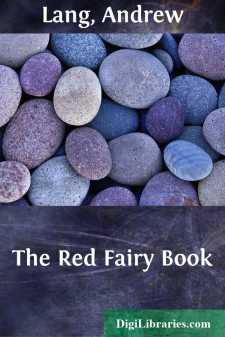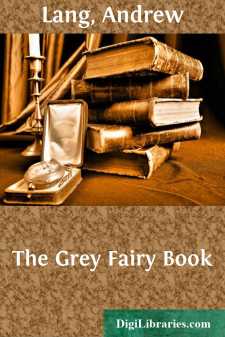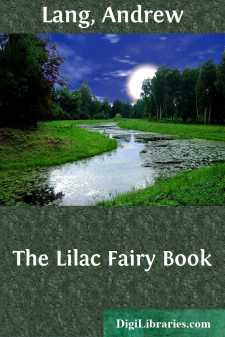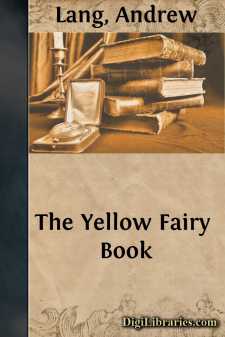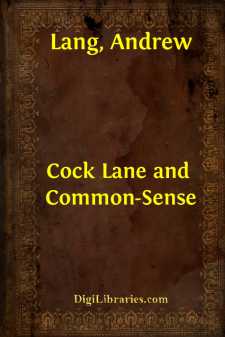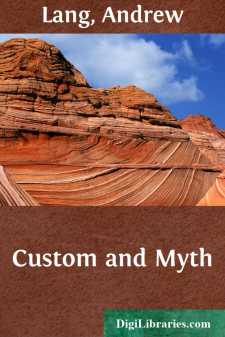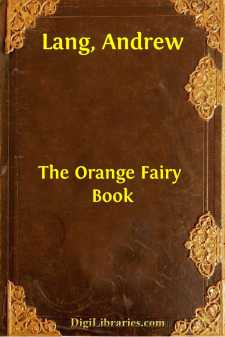Categories
- Antiques & Collectibles 13
- Architecture 36
- Art 48
- Bibles 22
- Biography & Autobiography 813
- Body, Mind & Spirit 142
- Business & Economics 28
- Children's Books 17
- Children's Fiction 14
- Computers 4
- Cooking 94
- Crafts & Hobbies 4
- Drama 346
- Education 46
- Family & Relationships 57
- Fiction 11829
- Games 19
- Gardening 17
- Health & Fitness 34
- History 1377
- House & Home 1
- Humor 147
- Juvenile Fiction 1873
- Juvenile Nonfiction 202
- Language Arts & Disciplines 88
- Law 16
- Literary Collections 686
- Literary Criticism 179
- Mathematics 13
- Medical 41
- Music 40
- Nature 179
- Non-Classifiable 1768
- Performing Arts 7
- Periodicals 1453
- Philosophy 64
- Photography 2
- Poetry 896
- Political Science 203
- Psychology 42
- Reference 154
- Religion 513
- Science 126
- Self-Help 84
- Social Science 81
- Sports & Recreation 34
- Study Aids 3
- Technology & Engineering 59
- Transportation 23
- Travel 463
- True Crime 29
A Monk of Fife
by: Andrew Lang
Categories:
Description:
Excerpt
CHAPTER I—HOW THIS BOOK WAS WRITTEN, AND HOW NORMAN LESLIE FLED OUT OF FIFE
It is not of my own will, nor for my own glory, that I, Norman Leslie, sometime of Pitcullo, and in religion called Brother Norman, of the Order of Benedictines, of Dunfermline, indite this book. But on my coming out of France, in the year of our Lord One thousand four hundred and fifty-nine, it was laid on me by my Superior, Richard, Abbot in Dunfermline, that I should abbreviate the Great Chronicle of Scotland, and continue the same down to our own time. He bade me tell, moreover, all that I knew of the glorious Maid of France, called Jeanne la Pucelle, in whose company I was, from her beginning even till her end.
Obedient, therefore, to my Superior, I wrote, in this our cell of Pluscarden, a Latin book containing the histories of times past, but when I came to tell of matters wherein, as Maro says, “pars magna fui,” I grew weary of such rude, barbarous Latin as alone I am skilled to indite, for of the manner Ciceronian, as it is now practised by clerks of Italy, I am not master: my book, therefore, I left unfinished, breaking off in the middle of a sentence. Yet, considering the command laid on me, in the end I am come to this resolve, namely, to write the history of the wars in France, and the history of the blessed Maid (so far at least as I was an eyewitness and partaker thereof), in the French language, being the most commonly understood of all men, and the most delectable. It is not my intent to tell all the story of the Maid, and all her deeds and sayings, for the world would scarcely contain the books that should be written. But what I myself beheld, that I shall relate, especially concerning certain accidents not known to the general, by reason of which ignorance the whole truth can scarce be understood. For, if Heaven visibly sided with France and the Maid, no less did Hell most manifestly take part with our old enemy of England. And often in this life, if we look not the more closely, and with the eyes of faith, Sathanas shall seem to have the upper hand in the battle, with whose very imp and minion I myself was conversant, to my sorrow, as shall be shown.
First, concerning myself I must say some few words, to the end that what follows may be the more readily understood.
I was born in the kingdom of Fife, being, by some five years, the younger of two sons of Archibald Leslie, of Pitcullo, near St. Andrews, a cadet of the great House of Rothes. My mother was an Englishwoman of the Debatable Land, a Storey of Netherby, and of me, in our country speech, it used to be said that I was “a mother’s bairn.” For I had ever my greatest joy in her, whom I lost ere I was sixteen years of age, and she in me: not that she favoured me unduly, for she was very just, but that, within ourselves, we each knew who was nearest to her heart. She was, indeed, a saintly woman, yet of a merry wit, and she had great pleasure in reading of books, and in romances. Being always, when I might, in her company, I became a clerk insensibly, and without labour I could early read and write, wherefore my father was minded to bring me up for a churchman. For this cause, I was some deal despised by others of my age, and, yet more, because from my mother I had caught the Southron trick of the tongue. They called me “English Norman,” and many a battle I have fought on that quarrel, for I am as true a Scot as any, and I hated the English (my own mother’s people though they were) for taking and holding captive our King, James I....



